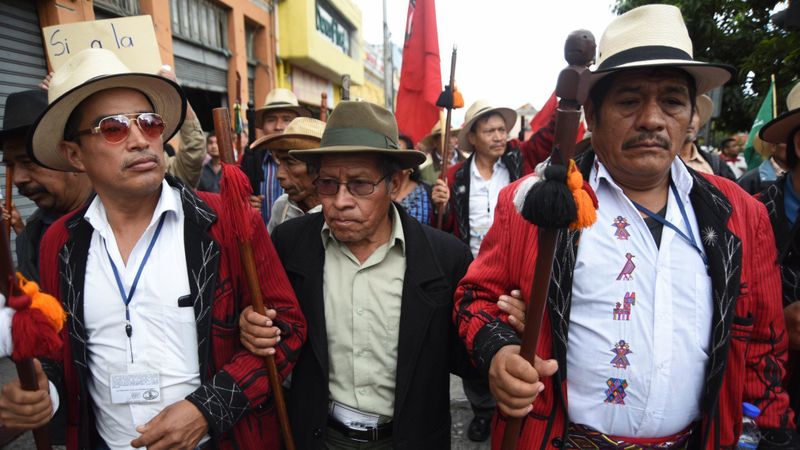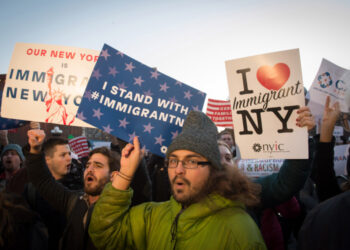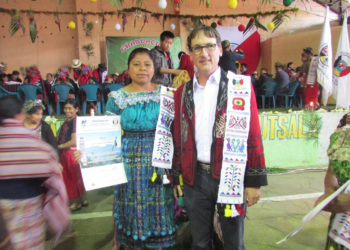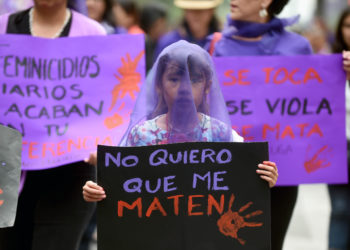Jakelin Caal, one of two Guatemalan children who died in December in U.S. border patrol custody, came from a village outside of Raxruhá in Guatemala’s lowlands, which means “the river runs blue” in her native Q’eqchi’ Mayan language. Once a sleepy hamlet of subsistence farmers, it is now a rambling frontier town controlled by armed narcos. They are the latest villains enabled by U.S. intervention in Guatemala to satisfy our gringo addictions for coffee, hamburgers, cars, cocaine, junk food, and gold.
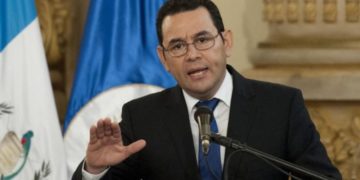
A coup is unfolding in Guatemala. Last week, President Jimmy Morales expelled a UN human rights team that investigated corruption. He then tried to impeach three supreme court justices who ruled his actions unconstitutional. With support from shadowy military and financial interest, an emboldened Morales asserted that he will re-open mines, hydroelectric, and other export projects stalled by environmental and social protests.
Should the U.S. permit this coup to continue, many more will flee Guatemala for political asylum. What goes around comes around. In fact, right before the CIA overthrew Guatemala’s first democratically elected government in 1954, it coined the term “blowback” to describe the negative repercussions that might drift back to the United States. Jakelin’s Q’eqchi’ people also have a single eloquent word for “you reap what you sow:” q’oq’onk.
Overthrowing Guatemala’s Government
Until the mid-20th-century, Raxruhá was a forest haven for Q’eqchi’ peasants fleeing brutal serf labor on coffee plantations. Guatemala’s first democratically elected president Jacobo Arbenz tried to redistribute idle coffee plantation land to peasant farmers like Jakelin’s grandfather. But the CIA overthrew President Arbenz in 1954 as an alleged communist threat. Instead of land reform, CIA agents advised their puppet military government to build roads into the rainforest for colonization by landless peoples.
Following behind Q’eqchi’ peasants, cattle ranchers began converting lowland rainforests to extensive pastures to export cheap beef for U.S. fast food. In 1975, a U.S. oil company struck oil 30 miles from Raxruhá. Along a new highway and pipeline cut through Q’eqchi’ territory, more politicians and military officers grabbed land. It became one of the focal regions of genocide during the 1980s. With tacit approval and military aid from the Ronald Reagan’s administration, the Guatemalan military massacred 600 indigenous villages, including many around Raxruhá.
Narco Traffickers Take Over
Then in the early 2000s, narco-traffickers moved into poor towns like Raxruhá. They belong to the Zetas drug cartel founded by rogue special force agents once trained by the U.S. military in counter-insurgency techniques.
After the Cold War, some became security for the Gulf Cartel and then formed their own narco ring which re-entered Guatemala through Q’eqchi’ territory. As a money laundering cover, they have expanded cattle ranching and palm plantations (producing oil for our cosmetics and junk food). Throughout Q’eqchi’ territory, villages like Jakelin’s are fighting nickel mines, sugar cane plantations, oil pipelines and refineries, and hydroelectric dams.
Before these transnational interests seized Q’eqchi’ homelands, families like Jakelin’s would never have dreamed of emigrating. Humble, hardworking, adaptable, and resilient people, they would much prefer to farm maize and beans on small homesteads in the rainforest than go north. I have lived in many Q’eqchi’ villages. Until about a decade ago, I only knew of one person with a relative in the U.S., but today those same places are losing dozens upon dozens of their young people.
Crackdown
Those who stay and try to defend their territory are often killed. Last year, seven grassroots environmental defenders were murdered in one month alone, including a Q’eqchi’ leader, Luis Arturo Marroquin. Despite the risks of a crackdown, tens of thousands of peasants and indigenous people are blocking roads today across Guatemala to protest the unfolding coup. A Q’eqchi’ friend just messaged me: “Yes, we are out against these corrupt clowns in power.”
If Guatemala becomes another Honduras from which caravans of migrants began to flee after its 2009 coup, Congress should immediately stop all aid to the Guatemalan government and especially to its military and condition reinstatement of those funds on the U.N.’s safe return to work. They should also support H.R. 7314, the Guatemala Rule of Law Accountability Act, to block the assets and deny visas of Guatemalan officials and business elites accused of corruption or human rights abuses.
In little Jakelin’s memory, the U.S. must act quickly to prevent Guatemala from descending into a human rights crisis.
Disclaimer: The views and opinions expressed here are those of the author and do not necessarily reflect the editorial position of The Globe Post.

